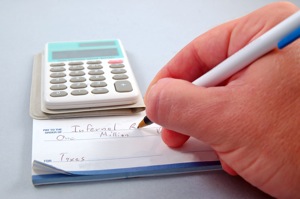Tracking Business Expenses
 By Sara Pedersen
By Sara Pedersen- advertising (printing marketing materials, Google AdWords, print advertisements, etc.)
- car expenses (mileage OR repair expense if used exclusively for business purposes)
- dues for professional organizations (like NAPO, POC, or ICD)
- gifts for clients up to a max of $25 per person
- educational materials and classes specific to your job (books and magazines on organizing, webinars, teleclasses, conference fees)
- home office (may include portion of utilities)
- internet services, business phone expenses, web site hosting and domain names
- insurance for your business
- interest and fees on business-only credit cards, bank service charges
- legal and professional services (accountant, lawyer, marketing consultant, etc.)
- office expenses, small equipment and furnishings
- supplies
- taxes and licenses
- travel and meals related to business
If you have a separate space within your home that you use solely for business purposes (your home office), you may want to investigate the home office deduction. It can be a great money-saver. And when you claim the home office deduction, you can claim the miles driven from your home to a client's or other business stop. (If you don't claim your office as a deduction, you cannot claim business miles starting at your home as that is considered "commute" miles.)
Remember that you need to formally track your business mileage in a log book or computer program like Excel or Quickbooks. Or consider one of the easy-to-use apps for your smartphone. Search for "mileage log" to find apps such as MileBug, which can even automatically calculate your mileage using GPS technology!
When in doubt, consult an accountant for full details. Even if you do your own taxes each year, it might be worth it to schedule a consultation with a CPA to make sure you're maximizing all potential deductions.
Copyright 2012 Time to Organize® LLC
No comments:
Post a Comment